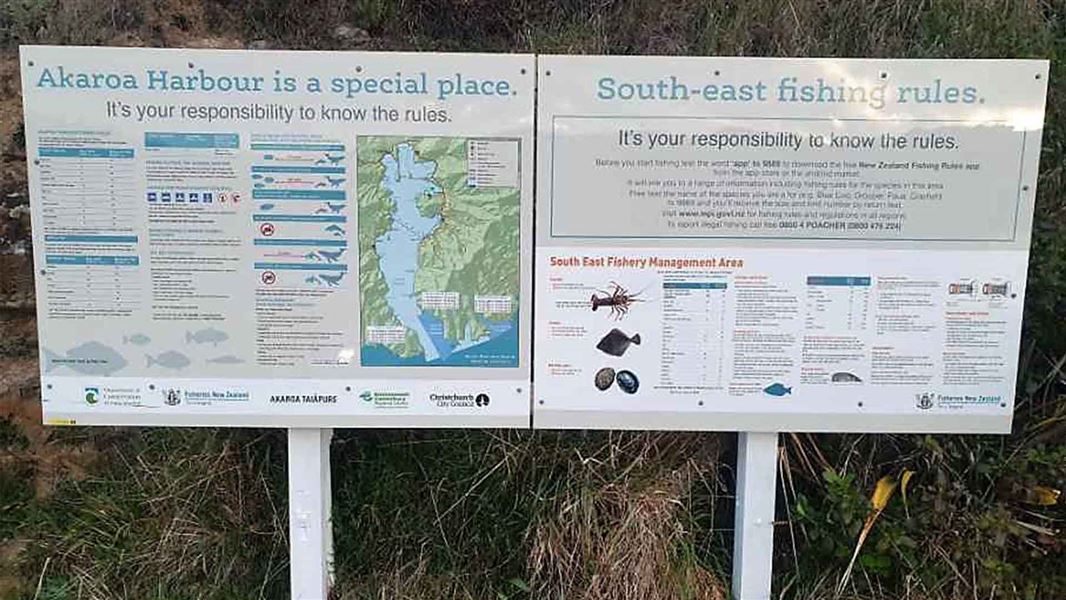Archived content: This media release was accurate on the date of publication.
Date: 17 September 2020
Mahaanui, in Otautahi/Christchurch, is one of the pilot areas for the new enforcement system, which will support DOC in enforcing the rules that help protect our unique biodiversity and places.
“Mahaanui features special places which are home to amazing species, such as the Akaroa and Pōhatu marine reserves, the dunelands at Kaitorete, and Te Waihora which is bordered by lakeshore reserves with extensive wetlands. DOC is privileged to have a role in protecting them, part of which is enforcing conservation law,” says Mahaanui Operations Manager Andy Thompson.
“Our two marine reserves are home to iconic South Island species like rawaru/blue cod, pāua and koura/crayfish. Pōhatu is home to the largest little blue penguin colony on mainland New Zealand, and both reserves are visited by endangered Hector’s dolphins. Pōhatu is also a popular recreational spot, with many people visiting to enjoy the biodiversity offered in the reserve. The no-take rules help to conserve this ecosystem.”
The enforcement system will allow DOC to issue infringement notices for people breaking these laws, in addition to the existing tools of a warning letter or prosecution.
Infringement notices have an associated fine between $200 and $800. They send a stronger deterrent message than a warning letter but don’t result in a criminal conviction for the offender. Repeat offenders or those committing serious offences can still be prosecuted.
Andy Thompson says that most people understand the rules and are happy to follow them, but there are some instances where people don’t.
“Some of the most common offences we see are in relation to dogs and wildlife, fishers breaking whitebaiting rules, and people disturbing the rare birds that live on our braided rivers. The highest number of prosecutions is in relation to the marine reserves at Banks Peninsula.
“Recently we’ve installed new signage on the marine reserve cliffs to remind people the reserve is there and to make the boundaries clearer. We’ve also improved the signage at the boat ramps. We want to educate people in the first instance, but for those who do continue to break the rules, there is now a chance you will be fined.”
With whitebaiting season underway, Andy Thompson is also reminding fishers to follow the rules, including keeping within the gear limits and staying within 10 metres of your net.
“We do have warranted officers out there in the field, keeping an eye to make sure people are following the rules. Many species of whitebait are threatened and the regulations help maintain sustainability of fisheries as well as keep things fair.”
A nationwide network of Warranted Officers monitor, promote and enforce compliance with the rules. They are DOC staff specially trained and warranted under the Conservation Act 1987.
Offences will be recorded in DOC’s new enforcement system database, helping to build a national picture of compliance across the country. This will help identify areas where further effort might be needed. The enforcement system will be rolling out nationally after September.
Background information
- Conservation rule breakers may face fines.
- Pohatu Marine Reserve.
- Akaroa Marine Reserve.
- DOC's compliance and enforcement work.
- DOC's enforcement tools.
Contact
For media enquiries contact:
Email: media@doc.govt.nz
